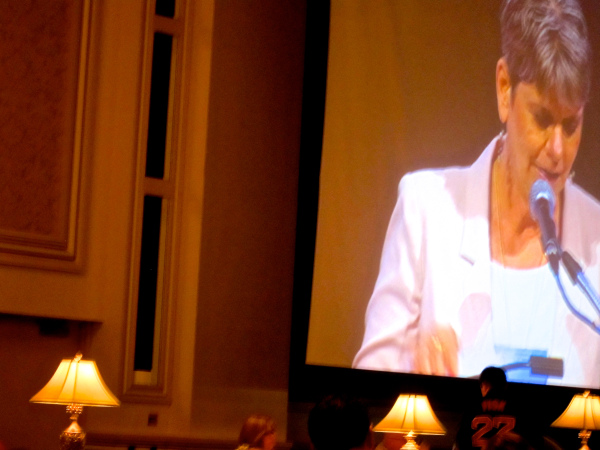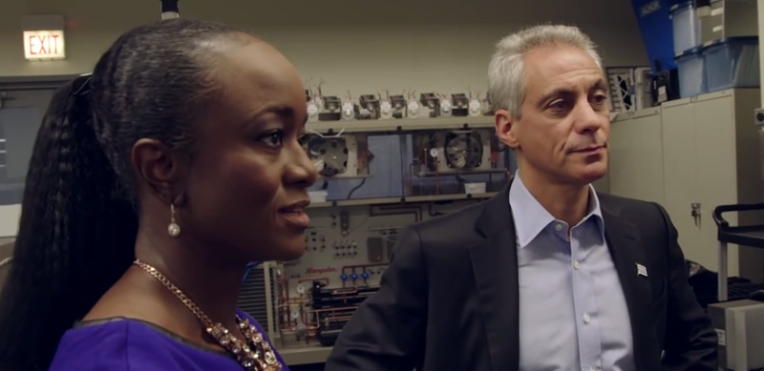
The regular session of the Illinois General Assembly ends May 31st. Nobody I know expects a budget deal with the crazy governor by then.
I was talking with Springfield lobbyist the other day and the conversation about the governor seemed to be more about his psychological state than his political strategy.
“He doesn’t care if he wins or loses,” said the lobbyist.
I’m not a shrink. So I’ll stay focused on the politics of it all.
Conventional wisdom seems to be that some agreement on K-12 funding will get done.
Yesterday I wrote again about SB 231, Senator Manar’s bill to change the funding formula and take money from special education categorical funding and move it to school districts’ general fund. It effectively reduces money for special education.
When Bob Kaplan, IEA retired activist and member of the IEA’s legislative committee asked on Facebook why the IEA was neutral on the Manar bill when the IEA’s Legislative Program opposes both the spending shift and cuts to mandated direct categorical special education grants, he received a response from IEA President Cinda Klickna.
Cinda Klickna: “You might ask for details.”
Bob: “I have and have gotten no explanation. I’m asking for details.”
What is odd is that the Manar bill has been around in one form or another for three years. It has been in one legislative committee or another this session. The IEA Representative Assembly met and approved the Legislative Program just about a month ago. They may have “discussed it on the board” last year, but no changes to the Program were presented or voted on.
Characterizing the Manar bill as “giving to poorer districts from more affluent” doesn’t do justice to what they want to do.
The negative impact on special needs students may be devastating.
Here is the language from the IEA Legislative Progam approved a little over a month ago:
“All of Illinois’ students deserve the same access to learning opportunities, level of commitment, and economic support. School funding should be based on a per-pupil amount equal to that of the wealthiest districts in the state (my emphasis).”
That is what an education funding bill should say. I don’t know what was discussed a year ago at a board meeting, but that language is what the members through their delegates at the state IEA Representative Assembly voted for.
The Legislative Program is intended to guide lobbyists and leadership as to what legislation IEA opposes or supports. It is the membership’s voice on these issues.
Some have suggested that the “neutral” position is just a place holder until the language of a bill is finally ready for a vote. Although Klickna’s “we discussed it on the board” comment would suggest otherwise. But even if neutral is a place holder, that wouldn’t prevent the IEA from speaking publicly on what they want. I thought that was what all this “sitting at the table” stuff was about.
There is a new state education spending bill, HB828. It is viewed as an alternative to SB231 which remains in Executive Committee.
According to Bev Johns:
State spending for next school year may be frozen at this years level EXCEPT for $500 to $700 million added to the low income part of General State Aid (perhaps plus pension money for Chicago OR allowing Chicago to raise taxes to pay for pension costs).
The Evidence Based plan (which moves direct aid to special education) is now in legislation as Amendment 1 to House Bill 828
Adding $500 to $700 million would greatly help schools with concentrated low income students.
According to the current formulas, if a school district has 15 percent or less low income (as determined by the DHS formula) they receive $355 for each low income student. For more than 15 percent, there is a formula. For example, if 30 percent, it is $537 for each low income student; if 50 percent, $969 per student, and if 80 percent low income students, it is $2,022 per student.
ANY combination of money, SB 231 and HB 828 is possible, or NOTHING may be done before May 31. (After that date it takes a 3/5 vote of the Illinois House and Illinois Senate for a bill to be immediately effective.)
Update:
Fred – This is a little confusing.
There are 3 entirely separate and independent proposals.
(1) $500 to $700 million in more money for next school year. This is just appropriations with NO change in the school funding formulas.
(2) Senate Bill 231, the Manar bill, which has a Block Grant for special education (changes school funding formulas, but appropriates NO money).
(3) House Bill 828, with Amendment 1, which has an entirely different Block Grant for special education (changes school funding formulas, but appropriates NO money).
Thanks, Bev








